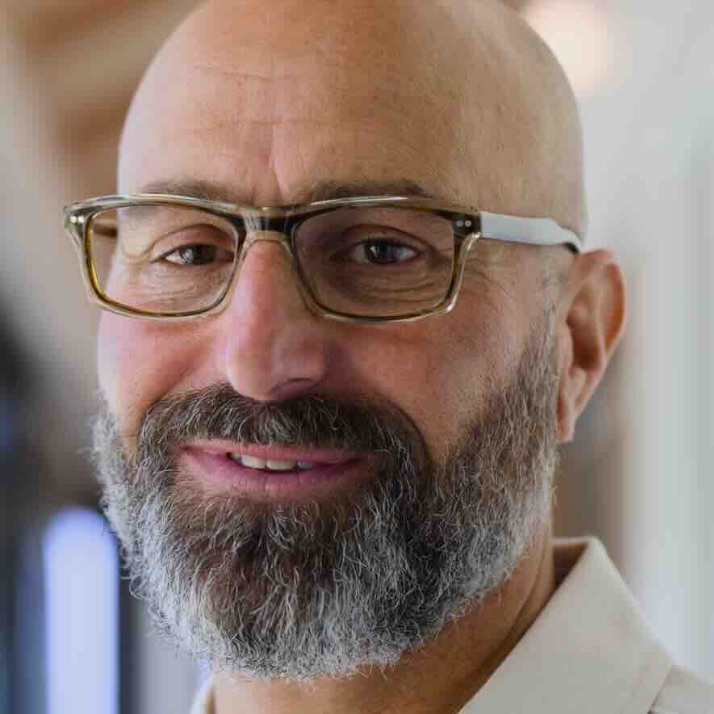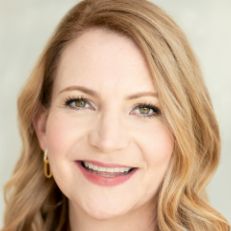Why Local Care Matters for Obsessive-Compulsive Personality Disorder (OCPD)
Finding Obsessive-Compulsive Personality Disorder (OCPD) therapy in Charlotte can make a meaningful difference because local clinicians understand the community’s rhythms, workplaces, and stressors that can reinforce perfectionism and control. With Obsessive-Compulsive Personality Disorder (OCPD)’s focus on order, rules, and high standards, it helps to work with a nearby therapist who can offer structured, goal‑oriented treatment and practical homework you can integrate into daily life. Local care also supports consistent scheduling and short commutes, which reduces disruptions that people with Obsessive-Compulsive Personality Disorder (OCPD) often find challenging. Matching with someone who respects your routines and values increases engagement and progress.
MiResource makes finding the right Obsessive-Compulsive Personality Disorder (OCPD) specialist in Charlotte simple with filters for insurance, real‑time availability, and therapy type, so you can quickly surface providers offering CBT or schema therapy, as well as couples work when relationship strain is present. You can narrow by evening or weekend slots to protect your schedule, and by cultural fit to align with your background and communication style. Accessibility options help you choose in‑person or telehealth nearby, ensuring therapy is practical to maintain. Better local matches improve outcomes, and MiResource’s streamlined directory gets you there faster.
Local Options and Community Programs
Managing Obsessive-Compulsive Personality Disorder (OCPD) often benefits from consistent therapy, skills practice, and community support. Charlotte offers crisis response, county care coordination, and a mix of nonprofit, health‑system, and sliding‑scale clinics. These resources can help you find therapists, peer support, and affordable care, and connect you quickly in urgent situations. Use crisis options for immediate safety, and public or community programs for ongoing treatment and support.
- Crisis Support
- Public Programs
- Nonprofits & Support Groups
- Universities & Health Systems
- Community Clinics (FQHCs / Sliding-Scale)
The Advantages of Seeing a Charlotte-Based Therapist
Choosing a Charlotte-based therapist for Obsessive-Compulsive Personality Disorder (OCPD) means working with someone who understands the city’s rhythms, from detail-driven corporate culture in Uptown to the creative, flexible vibe in NoDa and Plaza Midwood. Local clinicians can tailor strategies around daily routines tied to I‑77 and I‑85 commutes, deadlines in South End startups, or family expectations in Ballantyne and Myers Park. In-person sessions are easy to reach via the LYNX Blue Line, CATS bus routes, and park-and-ride options, with convenient parking near Romare Bearden Park, the NASCAR Hall of Fame, and the Spectrum Center. This city-specific knowledge helps translate Obsessive-Compulsive Personality Disorder (OCPD) coping skills into real-life plans for meetings, home projects, and community obligations.
Charlotte also offers a strong network to reinforce therapy goals, including groups through Mental Health America of Central Carolinas and NAMI Charlotte, and resources at the Charlotte-Mecklenburg Library, the McColl Center, and the Mint Museum for structured yet restorative activities. Therapists can connect you with Mecklenburg County Behavioral Health programs, Atrium Health and Novant Health services, and community supports like Care Ring, plus school-based options through Charlotte-Mecklenburg Schools. Meeting face-to-face near Freedom Park, Little Sugar Creek Greenway, or in offices across Dilworth, University City, and SouthPark reduces barriers and supports steady attendance. The result is accessible, culturally aware care grounded in Charlotte’s neighborhoods, landmarks, and programs.
Holistic Approach to Mental Health in Charlotte
Holistic care means tending to your mind, body, and environment together—so alongside support for Obsessive-Compulsive Personality Disorder (OCPD)’s perfectionism and rigidity, you build routines that include movement, mindful breathing, nourishing food, and restorative spaces. In Charlotte, that can look like yoga at Be Yoga or Khali Yoga Center, meditation at Kadampa Meditation Center Charlotte, and integrative wellness offerings through Novant Health and Atrium Health. Green spaces like Freedom Park, Little Sugar Creek Greenway, and the U.S. National Whitewater Center invite grounding walks and structured exercise that align with Obsessive-Compulsive Personality Disorder (OCPD)-friendly routines. Cultural hubs—NoDa, South End’s Rail Trail, the Mint Museum, and Blumenthal Performing Arts—offer creative outlets and community connection that ease stress and support balance.
Care here goes beyond traditional therapy by blending evidence-based treatment with complementary practices and community wellness opportunities woven into daily life. Mindfulness classes in Plaza Midwood, neighborhood run clubs in Dilworth, and wellness workshops at local libraries make sustainable habits easier to maintain. Whether you’re seeking a therapist who understands Obsessive-Compulsive Personality Disorder (OCPD), a calm class that fits your schedule, or nearby green spaces to reset, MiResource helps you map a personalized path through Charlotte’s options. Start with us to find providers and programs matched to your goals, neighborhood, and pace.
What Obsessive-Compulsive Personality Disorder (OCPD) Means
Obsessive-Compulsive Personality Disorder (OCPD) is a pattern of perfectionism and need for control that can make it hard to be flexible. In Charlotte, it may look like spending lots of time rechecking tasks, sticking to strict routines, or feeling distressed when plans change, which can strain daily life and relationships—but help is available.
About the Experience of Obsessive-Compulsive Personality Disorder (OCPD)
Obsessive-Compulsive Personality Disorder (OCPD) is a pattern of needing things to be just right, with strong focus on rules, order, and control. Common signs include perfectionism, trouble delegating, getting stuck on details, and feeling upset when plans change. In daily life, this can make routines take much longer, create stress at work or home, and make it hard to relax or connect with others. If you’re in Charlotte and recognize these experiences, you’re not alone and support is available.
How Therapy Makes a Difference
Evidence-based treatments like cognitive behavioral therapy (CBT) help people with Obsessive-Compulsive Personality Disorder (OCPD) challenge perfectionistic thinking, reduce rigidity, and practice flexible behaviors that improve work-life balance and relationships. Schema therapy targets core “unrelenting standards” and control schemas, promoting self-compassion and greater spontaneity. Psychodynamic or interpersonal therapies can deepen insight into underlying needs, easing conflict and increasing collaboration at home and work. With Obsessive-Compulsive Personality Disorder (OCPD) therapy in Charlotte, many clients report measurable gains in flexibility, satisfaction, and connection within weeks to months.
Inside the Therapy Process
In Charlotte, your first session typically focuses on getting to know you—your history, values, and how perfectionism and rigidity show up day to day—so you can set clear goals together. From there, you and your therapist create a personalized treatment plan that may include cognitive behavioral strategies to challenge rigid thinking, schema therapy to shift long‑standing patterns, and elements of psychodynamic work to understand underlying drivers. Ongoing sessions emphasize collaboration: you’ll practice new skills, try real‑life experiments between visits, and regularly review what’s working so the plan can be adjusted. The aim is steady, practical progress that helps you build flexibility, balance high standards with self‑compassion, and feel more in control.
Answers to Your Questions About Obsessive-Compulsive Personality Disorder (OCPD)
1. How do I know when it’s time to seek help for Obsessive-Compulsive Personality Disorder (OCPD)?
If perfectionism, strict routines, or spending excessive time on details are making daily life in Charlotte feel exhausting or rigid, it may be a sign to reach out. You might notice distress when plans change, difficulty delegating, or conflicts at work or home because things must be done “the right way.” When these patterns cause stress, strain relationships, or keep you from enjoying life, therapy can help you find balance without losing your values. Support is available in Charlotte, and taking the first step is a strong, caring choice for yourself.
2. What if I don’t feel comfortable with my first Obsessive-Compulsive Personality Disorder (OCPD) therapist in Charlotte?
It’s okay if your first Obsessive-Compulsive Personality Disorder (OCPD) therapist in Charlotte doesn’t feel like the right fit—many people try more than one. A strong therapeutic match matters for progress, comfort, and trust, especially with Obsessive-Compulsive Personality Disorder (OCPD). MiResource makes it easy to compare Charlotte therapists, read profiles, and find someone who aligns with your goals. You don’t need to feel guilty about switching; finding the right fit is a normal and important part of the process.
3. How do I explain my Obsessive-Compulsive Personality Disorder (OCPD) to friends or family?
It’s your choice whether to share about Obsessive-Compulsive Personality Disorder (OCPD), and you can disclose only what feels right for you, when you’re ready, here in Charlotte or anywhere. Pick a calm time and place, use simple “I” statements (“I do best with routines”), and share just a few examples that feel safe. Set boundaries by asking for specific support (“Please text before dropping by”) and letting people know topics or behaviors that are off-limits. If a conversation feels uncomfortable, it’s okay to pause, change the subject, or revisit it later with someone you trust.
4. Who can diagnose Obsessive-Compulsive Personality Disorder (OCPD) in Charlotte?
In Charlotte, psychiatrists, psychologists, and licensed therapists—and sometimes primary care doctors—can diagnose Obsessive-Compulsive Personality Disorder (OCPD). Diagnosis typically involves a thorough clinical interview, a review of your history and symptoms, and comparing them to established criteria to determine the best next steps. MiResource lists only qualified, licensed providers in Charlotte who can deliver accurate diagnoses and guide you toward appropriate treatment.
5. What causes Obsessive-Compulsive Personality Disorder (OCPD)?
Obsessive-Compulsive Personality Disorder (OCPD) often develops from a mix of biological, psychological, social, and environmental factors, and these influences can look different for each person. It’s not anyone’s fault or a reflection of personal weakness—just a complex pattern that can emerge over time. Many people in Charlotte find it helpful to learn about their own triggers and strengths to better understand what’s going on. If you’re concerned about Obsessive-Compulsive Personality Disorder (OCPD), consider reaching out for support in Charlotte to explore options that fit your needs.
6. What are the biggest misconceptions about Obsessive-Compulsive Personality Disorder (OCPD)?
Many people think Obsessive-Compulsive Personality Disorder (OCPD) is just a phase or a personality quirk, but it’s a recognized mental health condition that can significantly affect daily life. Another myth is that having Obsessive-Compulsive Personality Disorder (OCPD) means someone is weak or chooses to be rigid—Obsessive-Compulsive Personality Disorder (OCPD) is not about willpower; it’s about patterns that can be treated and managed. It’s also not the same as being “neat” or “organized”; Obsessive-Compulsive Personality Disorder (OCPD) involves persistent perfectionism and control that can cause distress. If you’re in Charlotte and see yourself or a loved one in these signs, know you’re not alone—support is available, and reaching out for professional help is a strong, positive step.













